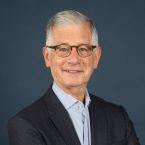- April 18, 2023
- Civic Data
To celebrate the opening of the Bloomberg Center for Cities at Harvard University, Professor Stephen Goldsmith interviewed philanthropist and former mayor Michael Bloomberg about his experience leading New York City with data, his investment in educating and supporting mayors, and his goal for the new Center.
Stephen Goldsmith: Today, as we announce the opening of the new Bloomberg Center for Cities at Harvard University, we are reflecting on our project Data Smart City Solutions. Data-Smart is now part of the Center but was originally funded by Bloomberg Philanthropies eight years ago. What was your goal at that time?
Mike Bloomberg: We had a saying in New York’s City Hall and now at Bloomberg Philanthropies: If you can’t measure it, you can’t manage it. Data guided all of our efforts in City Hall, and at the same time, we were never shy about borrowing great ideas from other cities. The more cities work together and share insights, and the more they follow the data, the faster they can make progress and the brighter the future will be. Our foundation has been supporting that kind of data-driven idea-sharing for more than a decade, and now the Center for Cities will build on and expand that work.
Goldsmith: Your philanthropy has played a large part in funding innovation around the world. What do you see as the connection in urban governance between innovation and smart city tools?
Bloomberg: A willingness to fail. That’s at the heart of innovation and it’s what leads to breakthroughs in developing new tools. But the public sector tends to be more risk averse than the private sector, because every misstep is magnified by the press and that can jeopardize the jobs of elected officials. One important way to deal with risk is to use data, and more and more cities are recognizing the need to improve their abilities to do so. Data can help uncover problems. It can point the way to solutions that might have gone unnoticed. It can help elected officials build public support for new ways of doing things. It can show what is and isn’t working based on facts and evidence, not assumptions. And those results also help the best ideas to spread from city to city.
Goldsmith: How do you think your commitment to data helped your senior staff?
Bloomberg: Data helped commissioners and senior staff propose big ideas and shake up the status quo. For instance: our transportation commissioner, Janette Sadik Khan, came up with a plan to reduce traffic congestion in Midtown by closing a section of Times Square to cars and converting it to a pedestrian plaza. When she first proposed the plan to me, I told her she was crazy, and I might have added an adjective before crazy. After all: Times Square is one of the busiest intersections in the world - how could closing parts of it improve traffic? It was counterintuitive, but she had the data to back up the idea, so we agreed to give it a try. We had recently required GPS systems in taxi cabs, and in the months after we opened the pedestrian plaza, taxi GPS data showed the Times Square plaza plan worked – traffic was moving faster in surrounding streets. That data helped build public support for more pedestrian plazas around the city.
Goldsmith: What are your goals for the new Center for Cities that we’re celebrating today?
Bloomberg: Empower mayors. Build networks. Encourage cities to think big. Expand their capacity to execute on ambitious goals. Highlight great ideas – and help them spread around the world.
Goldsmith: Thank you, Mayor for your time today and for your commitment to helping other leaders around the world improve their communities.


 Stephen Goldsmith is the Derek Bok Professor of the Practice of Urban Policy at the Harvard Kennedy School and the
Stephen Goldsmith is the Derek Bok Professor of the Practice of Urban Policy at the Harvard Kennedy School and the 

